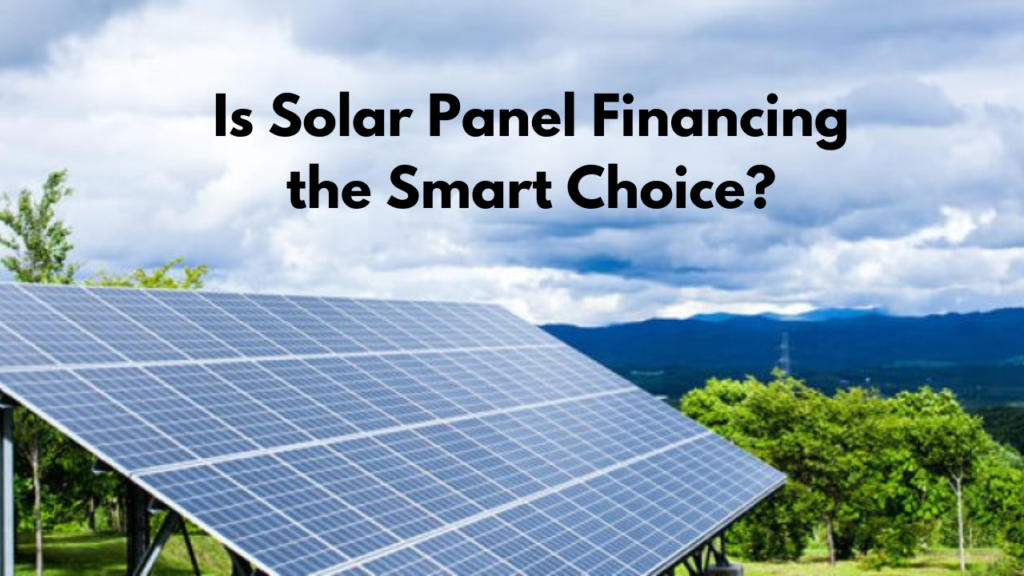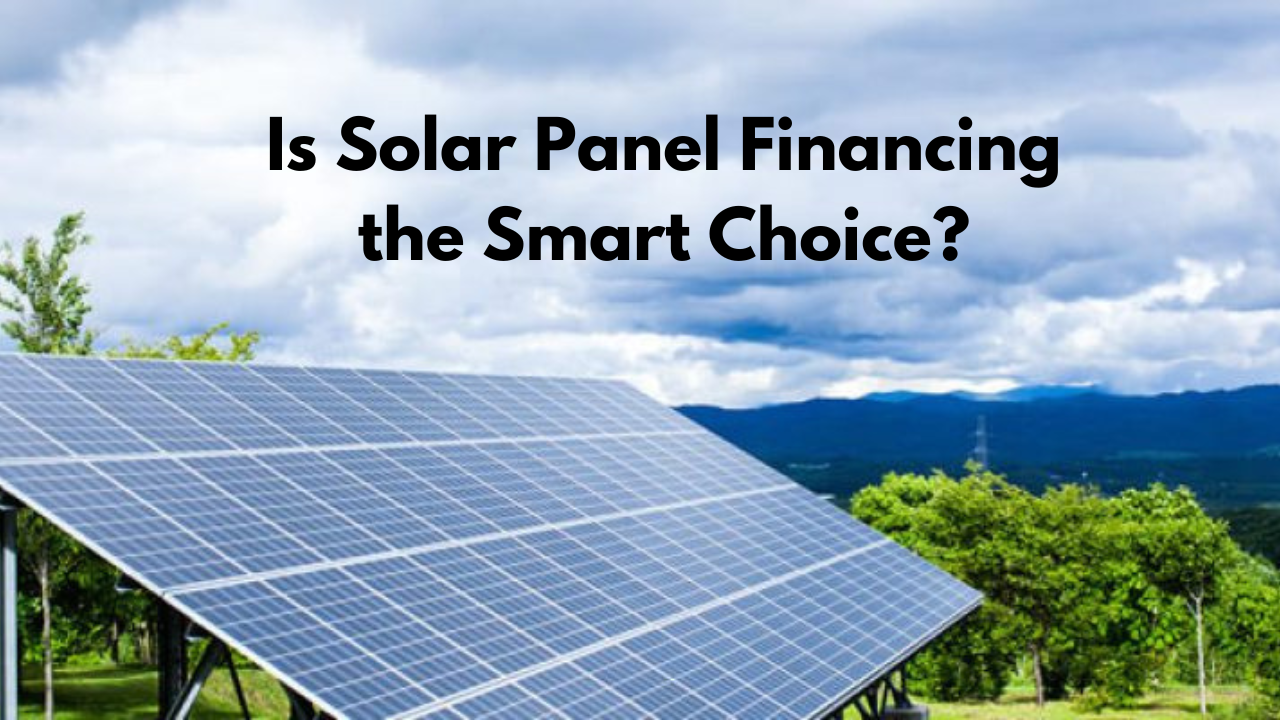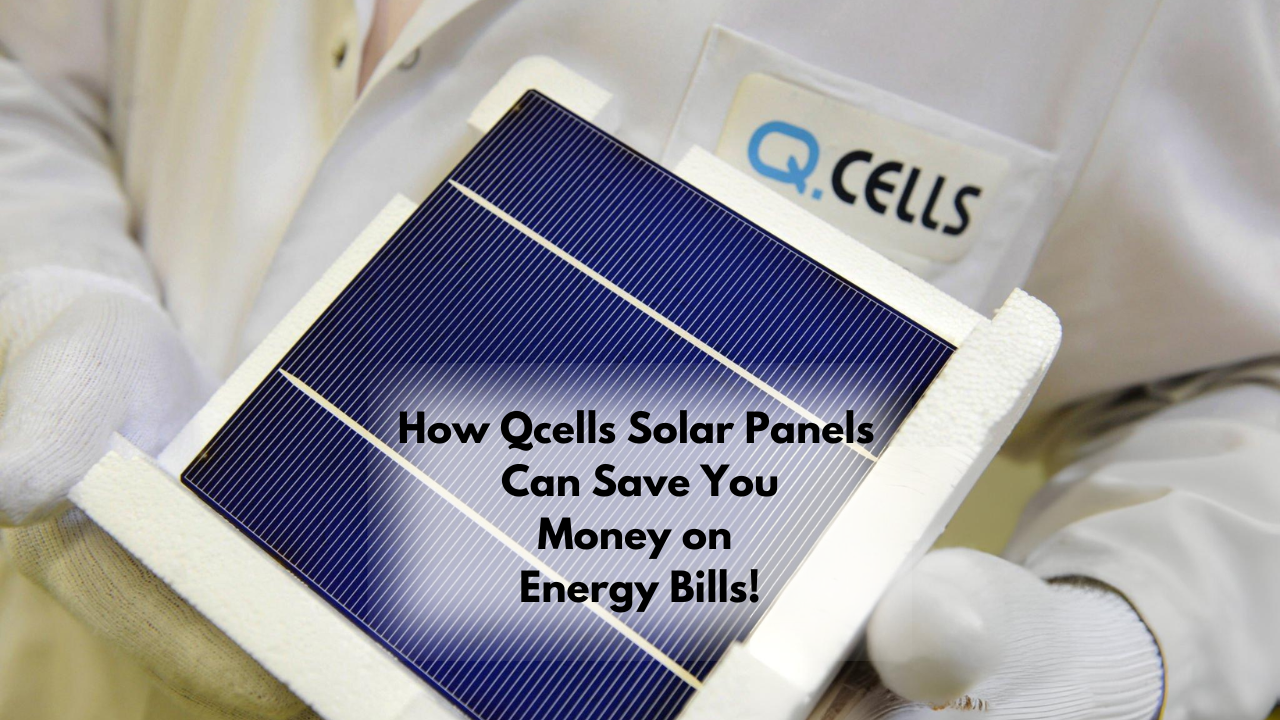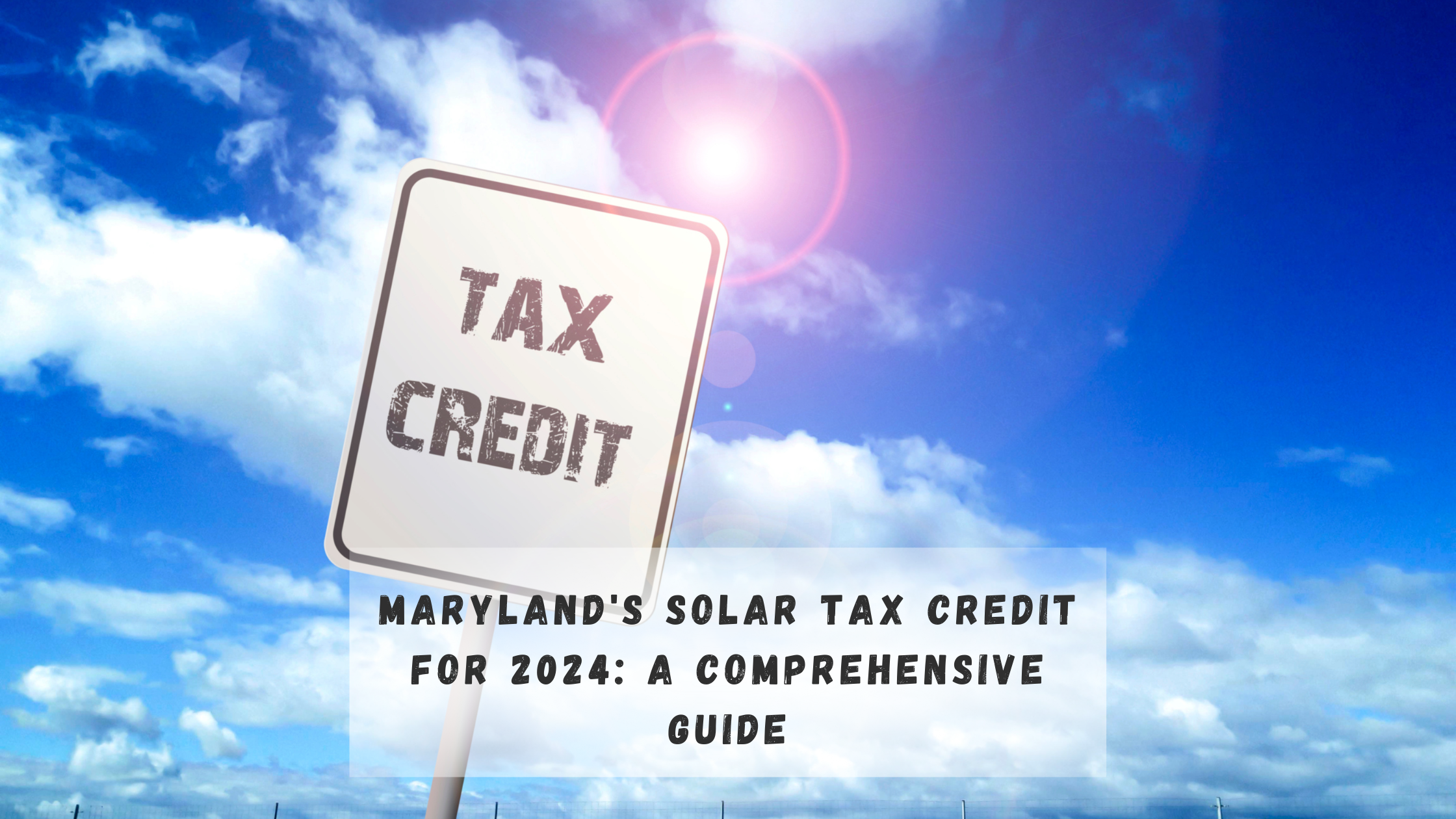Is solar panel financing the smart choice? After witnessing their power bill rise, anyone might consider looking for alternative energy sources. Solar panels have become a symbol of hope because they promise a future powered by the sun, lower utility costs, and less reliance on the power grid. But is it worth financing solar panels? Well, you can get clean energy without going broke by buying solar panels. But do you think it’s a good decision? Let’s investigate solar financing to see if it can help you advance financially.
Why Money Sunlight-based Chargers?: Benefits
There are numerous beneficial things about supporting sun-powered chargers, which makes sun based energy simpler for some individuals to get and more reasonable for some organizations and homes. A few significant benefits are as per the following:
- More affordable front and center:
Installing solar panels can be financed so that you don’t have to pay for them all at once. People who don’t have enough money to pay for solar energy all at once may be more able to benefit from it as a result of this.
- Lower energy costs:
Solar panels can significantly reduce your electricity costs once they are installed. The money you save on energy bills may more than cover the cost of the solar system.
- Monthly fixed payments:
You can get financing in a variety of ways with fixed monthly payments that can help you stick to your budget. These installments may be not exactly your ongoing energy bills, and that implies you’ll set aside cash immediately.
- Increased the property’s value:
Solar panels can increase your home’s value. Homes with solar energy systems typically sell for more than those without them.
- Credits and breaks on taxes:
Tax breaks, discounts, and awards are only a couple of the government, state, and nearby advantages that can assist you with introducing sun-powered chargers. If you finance these benefits, you can get them without having to pay the whole amount upfront.
- Positive effects on the environment:
Reduce your carbon footprint and contribute to cleaner and more stable environments by switching to solar energy. Giving credits to individuals and organizations that believe should accomplish something green assists them with getting it done.
- Independence from Energy:
Solar panels have the potential to reduce your reliance on the power grid, which can safeguard you from rising energy costs and provide you with a more stable energy source, particularly in locations where power outages are frequent.
- Options for financing:
There are various ways of paying for sunlight-based chargers, like sun-oriented advances, rents, and power buy arrangements (PPAs). Because of this adaptability, you can select the option that is best for your objectives and financial situation.
- Positive Cash Flow:
You may immediately experience positive cash flow if the savings you make on your energy bill are greater than the amount you pay each month for the loan.
- Performance and maintenance guarantee:
Maintenance and performance guarantees are included in a lot of financing options, ensuring that your solar panel system will perform well for as long as it lasts. When might financing not be the best option?
Negative aspects You might now be asked, “Is it worth it to finance solar panels?” All things considered, To make environmentally friendly power more modest, supporting sunlight-based chargers can be really smart. However, there are some disadvantages as well. The four main ones are as follows:
1. Exorbitant loan costs:
The loan fees and expenses can be high contingent upon the kind of funding picked, similar to a sun-powered credit or rent. In the long run, this could make installing solar panels much more expensive than if you paid for everything at once.
2. Long-Term Financial Commitment:
Typically, financing requires a long-term pledge of 10 to 25 years. This can be a hassle if your finances change and it becomes difficult to make payments.
3. Consequences for a Home Deal:
If you sell your house before the loan period expires, the buyer may be required to take over the payments, or you may be required to pay off the loan in full. This could make selling your house harder or take longer.
4. Auswirkungen on Credit Score:
Your credit is typically checked when you apply for a loan, which can temporarily lower your score. Additionally, failing to make the agreed-upon payments or repay the loan can harm your credit score and make it more difficult to obtain credit in the future.
What kinds of solar financing are available?
There are a few options available to you when it comes to financing solar panels:
• Solar Finance: These are loans specifically made available by solar companies, credit unions, or banks. They typically provide solar panel systems with terms and competitive interest rates.
• Home Equity Lines of Credit (HELOCs): A home equity line of credit (HELOC) can be a means of financing if you have a lot of equity in your home. While solar loans may have lower interest rates, keep in mind that you are using your home as collateral.
• Programs for Property Assessed Clean Energy (PACE): Finance that is backed by property taxes is available through these government-backed programs. They might be a good choice for people who can’t get traditional loans, but eligibility varies depending on where you live.
Is Solar Panel Financing the Smart Choice?
The decision ultimately rests on your particular circumstance. You now have every possible response to the question, “Is solar financing worthwhile?” Therefore, it is time to weigh the benefits and drawbacks, investigate financing options, and request estimates from reputable installers to make an educated decision that is beneficial to your home as well as your finances.



